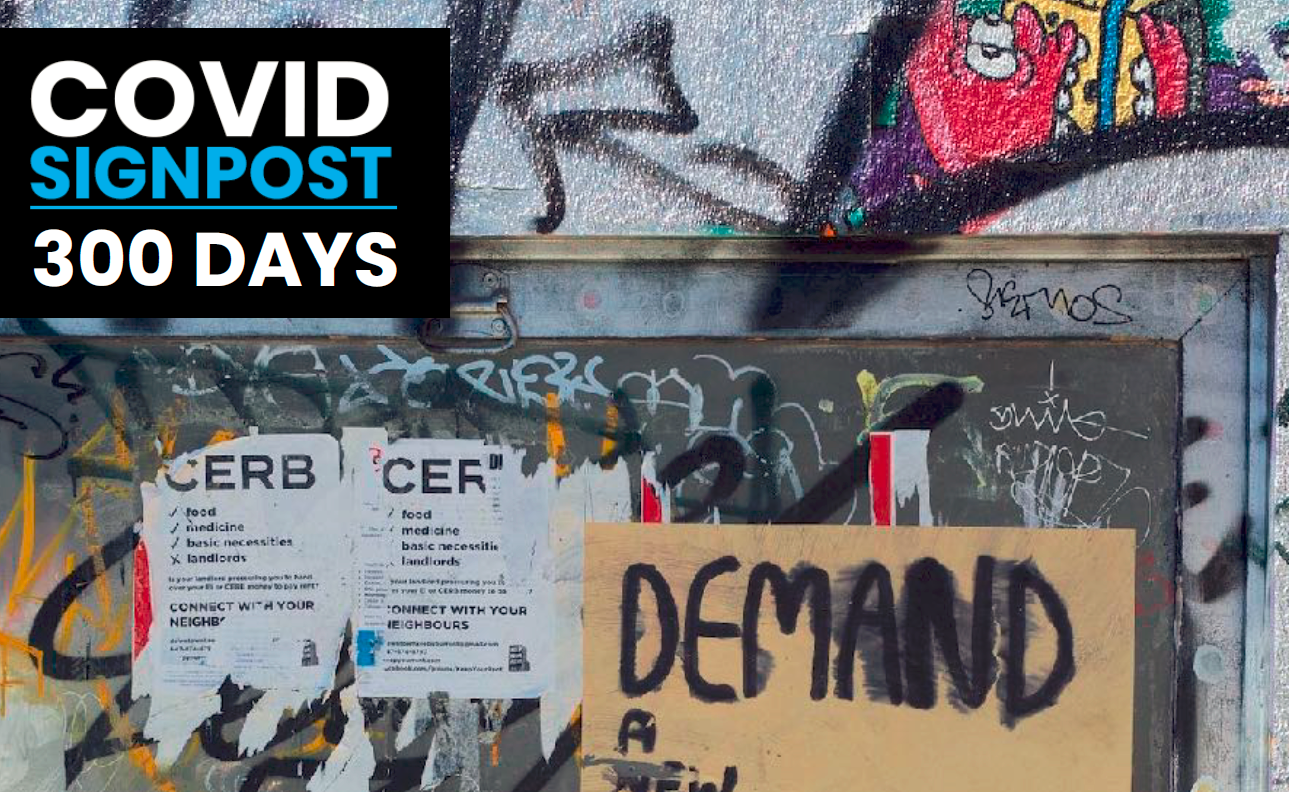News
New report presents discrepancy between COVID-19 data and recovery response, stressing the need to pivot towards hyper-local action in Canada’s largest cities

Wednesday, January 6, 2021 – The Canadian Urban Institute (CUI) continues to track the impacts of COVID-19 on Canadian cities, with a third COVID Signpost report released today that signals a growing disconnect between virus-related research and recovery response.
Of the 573,000 cases and 15,500 deaths announced on January 3rd 2021, Canada’s 20 largest cities (representing 42 per cent of Canada’s population) have experienced over 65 per cent of cases (373,319) and 69 per cent of deaths (10,725).
However, experiences across the country have vastly differed. For example, cities like Halifax, London, and Vancouver have experienced modest increases in the number of cases per 100,000 people. Edmonton, on the other hand, which had 4000 cases at Day 200, has endured more than 43,000 cases 100 days later.
This has had a devastating impact on main streets and downtowns across the country. Small businesses have been asked to meet a range of safety protocols to help mitigate the spread of the virus, and fewer residents are congregating on main streets, leading to dramatic declines in foot traffic and consumer patterns, as well as increases in vandalism and crime. As the report suggests, examining the risks and vulnerabilities in each city and neighbourhood is critical to not only understand the relationship between places and cases, but how recovery efforts can best support local populations most seriously affected.
Today, there is far more knowledge and data on COVID-19, yet case numbers and deaths are higher than ever. The disconnect between what we know of the virus and the responses to it leaves the most vulnerable communities at risk. For example, we continue to see disproportionate impacts of COVID-19 in neighbourhoods where the most marginalized live, yet still lack sufficiently granular, neighbourhood-level data to inform appropriate strategies to mitigate these impacts.
“We continue to see COVID-19 deepening existing inequities in urban spaces,” says Mary W. Rowe, CEO and President of CUI. “What we need now are hyper-local solutions that stem its impact, and build more resilience to those urban communities at highest risk”.
Data cited in previous CUI research and reinforced here confirms what we already know: COVID-19 is an urban crisis that requires urban solutions. Local leaders require more power and resources to drive the solutions their communities need, both in the immediate crisis and in its aftermath.
CUI began this work with Signpost 100, which was released in June 2020, and followed up with Signpost 200, which was released in September 2020. This Signpost 300 report offers a snapshot as we pass the 300-day mark, with plans for a more comprehensive COVID 365 examination in March 2021.
More details can be found at COVIDSignpost.ca.
For media inquiries, contact:
Jamie Basian
jbasian@canurb.org
416 365-0816 ext. 231
About the Canadian Urban Institute
CUI is Canada’s Urban Institute. We are the national platform that houses the best in Canadian city-building – where policymakers, urban professionals, civic and business leaders, community activists and academics can learn, share and collaborate with one another from coast to coast to coast.
